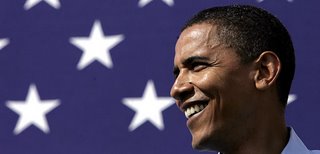 The stories that cultures repeat often reveal the character of their people—how they see themselves and how they wish to be seen. One of the persistent myths of North American culture has been examined by American philosopher John Shelton Lawrence and American religious scholar Robert Jewett in The American Monomyth, The Myth of the American Superhero, and Captain American and the Crusade of Zealous Nationalism.
The stories that cultures repeat often reveal the character of their people—how they see themselves and how they wish to be seen. One of the persistent myths of North American culture has been examined by American philosopher John Shelton Lawrence and American religious scholar Robert Jewett in The American Monomyth, The Myth of the American Superhero, and Captain American and the Crusade of Zealous Nationalism.The "American Monomyth" storyline: A community in a harmonious paradise is threatened by evil; normal institutions fail to contend with this threat; a selfless superhero emerges to renounce temptations and carry out the redemptive task; aided by fate, his decisive victory restores the community to its paradisiacal condition; the superhero then recedes into obscurity.
This myth has been retold many times in the films of John Wayne (The Man from Utah), Clint Eastwood (High Plains Drifter) and spoofed by Sergio Leone (My Name is Nobody) and Mel Brooks (Blazing Saddles). The basic plot is about a nameless cowboy (The Man with No Name) who saves a town from outlaws and then, rides off into the sunset.
As the days, weeks, and months have gone by, it has become increasing clear that Barack Hussein Obama (more like the man with the unpronounceable name), has been stepping into this role of the “selfless superhero.” (Will he be Cleavon Little or Will Smith?), and both Democrats and Republicans have reacted by questioning the mystery of his sudden rise (Bill Cinton’s “fairy tale” remark) or by portraying Obama as merely another politician (Political Wisdom: Barack Obama is a Politician).
Either response, however, is an acknowledgment of the role that Barack Obama has begun to play in the story of North America, and if he succeeds in winning the election, we’d all better start reading Greek myths and Shakespeare.
What the Greek myths and Shakespeare teach us is that the hero’s hubris leads to his downfall, and we have already seen certain tendencies of intellectual pride in Obama who has demeaned the beliefs held dear by “the common people”: “So it’s not surprising then that they get bitter, they cling to guns or religion.” (Salon) The fatal flaw of pride is a common flaw of rulers and gods, who once they begin to wield power, start to believe the hype of their omnipotence which leads to their downfall and they begin the karmic cycle from scratch: Indra and the Ants
Whether or not Obama gets to play the role of “savior” (witness the Jib-Jab video) will rely on the goodwill of the electorate to accept Obama’s vision of America’s future. But he should be wary. There are enormous risks in trying to embody one of the oldest human stories because if he fails, it could lean to the kind of disillusionment that Morpheus experiences in The Matrix: Reloaded: “I have dreamed a dream, but now that dream is gone from me.”
The dream, of course, is founded on the belief of American innocence and runs through Huckleberry Finn, For Whom the Bell Tolls, All the King's Men, and Mystic River. It's what made Ronald Reagan an indomitable force, despite the "fall" of Iran-Contra for which he was forgiven. (North Americans do not like tragedy--it's too human).
Obama's "purity" in every sense of the word is being tested. Robert Penn Warren called this America's fascination with the "Clean and the Dirty." Whether he passes the "purity" test or not is a matter of time and the optimism of North Americans that a man named Barack Hussein Obama can fulfill this mythic role.
No comments:
Post a Comment